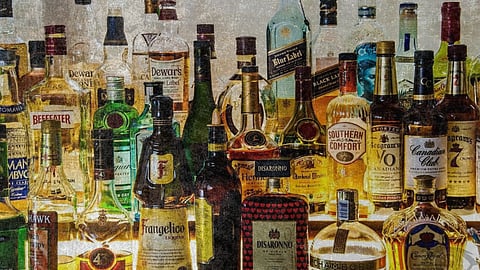

New alcohol guidelines recommending that Canadians limit themselves to just two drinks a week and ideally cut alcohol altogether have prompted intense debate over risk versus enjoyment in a country where the vast majority of adults regularly consume alcohol.
The Canadian Centre on Substance Use and Addiction (CCSA) this week called for a substantial reduction in consumption, warning that seemingly moderate drinking poses a number of serious health risks, including cancer, heart disease and stroke.
The new guidelines, funded by Health Canada, represent a dramatic shift from previous recommendations issued in 2011, when Canadians were told that low-risk consumption meant no more than 10 drinks a week for women and 15 drinks a week for men.
“We wanted to simply to present the evidence to the Canadian public, so they could reflect on their drinking and make informed decisions,” said Peter Butt, a professor of family medicine at the University of Saskatchewan and a member of the panel that drafted the guidelines. “It’s fundamentally based on the right to know.”
In its measurements, the CCSA considers a standard drink to be a 12oz (355ml) serving of 5%-alcohol beer, a 5oz (148ml) glass of 12%-alcohol wine or a shot glass of 40% spirits.
In the UK, the NHS recommends no more than six 6oz glasses of wine or six pints of 4% beer per week – ideally spread across three days or more. Health officials in the United States recommend no more than two drinks per day for men and only one for women.
But Canadian experts say that new research suggests three to six drinks a week should be considered moderate risk for both men and women, and seven or more drinks a week is high risk. In addition to elevated risk of colon and breast cancer, as well as heart disease and strokes, the CCSA also identified both injuries and violence as negative outcomes from drinking alcohol.
“This isn’t about prohibition. This is simply about reducing the amount one drinks,” said Butt.
The guidelines also warn that no amount of alcohol is safe when pregnant or trying to get pregnant. While abstinence during breastfeeding is the safest option, a standard drink occasionally does not significantly elevate risk.
